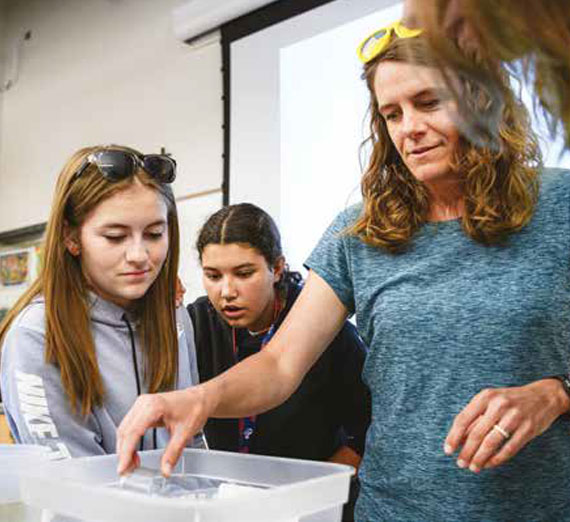Youth Immersion Program a Catalyst for Belonging

In 2021, a dream came to life within Opportunity Northeast, which sought to create educational pathways for members of the Northeast Spokane community. A five-day college immersion program was born, engaging rising 9th- and 10th-graders, first at John R. Rogers High School and later expanding to North Central High School. The goal, says Director of Strategic Partners Bailley Wootton, “is for youth to gain exposure to what college is like, from the academic coursework to the co-curricular activities that can be so pivotal to the educational experience, and begin envisioning themselves as a college student someday.”
The program can help build confidence.
“For many youth, college may not seem like an option, or they may not know the steps to get there. Catalyst helps address this uncertainty,” Wootton says.
She and colleagues from the Center for Community Engagement crafted the program with insights from Joan Iva Fawcett (dean for social justice leadership and community
empowerment), faculty members Juliane Mora and Jeff Dodd, and several other campus partners, plus high-school career counselors. Due to COVID restrictions, the first event operated like a day camp, but by year two, participants had the full experience of staying on campus to eat, study, take a class, participate in activities and sleep in a residence hall.
Dynamic classes focus on personal narrative exploring themes of identity, becoming and overcoming, movement, science and place-based discovery related to the Spokane Tribe and the history of the community, plus rafting, painting and other activities alongside Gonzaga students who serve as Catalyst Summer Fellows. Participants have expressed feeling comfortable sharing parts of their identity that they may not be as open about in other spaces. One student said they experienced “a sense of belonging” among their peers and gained confidence in themselves and in college.
Fawcett, whose educational doctorate capstone focused on accessible and equitable pathways to Jesuit higher education, used Catalyst as a case study. Her surveys showed that the program – designed for commonly underrepresented students (those of color, from low-income homes or future first-generation college students) – achieved its goal of helping these participants envision themselves as being successful in
college.
“It’s really special to see the youth grow over the course of the five days and become more confident in who they are and who they want to become. We’ve had several youth come back for a second year. Their increased comfort level and sense of pride being at Gonzaga illustrates the significance of these types of experiences,” Wootton says.
